Are you facing a disciplinary hearing and feeling a bit overwhelmed? Don't worry, you're not alone! This article is here to guide you through the essentials of preparing for such a meeting, ensuring you feel confident and informed. So, grab a cup of coffee and let's dive in to explore everything you need to know!
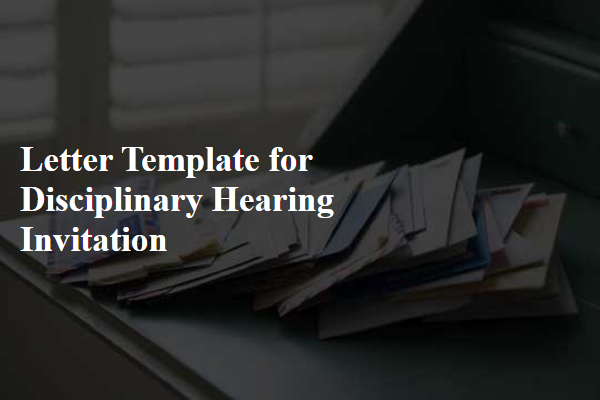
Pertinent employee information
At the upcoming disciplinary hearing scheduled for [date] at [time] in [location], we will review the conduct of [employee name], who holds the position of [job title] within [department name]. This meeting will address specific allegations which include [briefly outline alleged misconduct, e.g., attendance issues, policy violations]. It is essential to gather all relevant documentation, such as prior performance evaluations and attendance records, which will support the investigation. The attendance of both witnesses and representatives is permitted to ensure a fair examination of the circumstances.
Specific allegation details
A disciplinary hearing invitation includes specific allegations made against an employee that warrant consideration. The details typically encompass the nature of the alleged misconduct, which can range from violation of company policies (such as harassment or theft) to performance-related issues (like consistent tardiness or failure to meet job expectations). Additionally, key dates may be noted, including the date of the incident, the timeline of prior warnings, and the scheduled hearing date, often held at the HR office in the corporate headquarters. The invitation should highlight the formal procedures (such as the right to representation) and emphasize the importance of the employee's presence to discuss the implications, potential outcomes (like suspension or termination), and any necessary documentation that the employee must prepare in advance.
Date, time, and location of hearing
A disciplinary hearing invitation typically outlines essential details such as the date, time, and location of the hearing. The hearing is scheduled for October 15, 2023, at 2:00 PM, taking place in the Conference Room B of the company's headquarters located at 1234 Business Ave, Cityville, State. This hearing is essential for addressing the concerns regarding employee conduct in alignment with company policies, ensuring a fair and transparent process. All participants must arrive promptly to facilitate an organized proceeding and to maintain the integrity of the disciplinary process.
Rights and representation information
A disciplinary hearing invitation outlines the essential details regarding the hearing process for employees facing potential disciplinary actions within an organization. The invitation typically highlights rights, ensuring that employees understand they can seek representation during the hearing. Employees have the right to bring a colleague or union representative to support them. This ensures that they are aware of their rights and the procedures outlined in the organizational policy, often derived from statutory guidelines such as the Employment Rights Act 1996 in the UK. The document should also include the date and time of the hearing, location--often an HR office or designated meeting room--and provide information on how to prepare, including referencing any relevant policies or evidence that will be discussed.
Consequences of non-attendance
A disciplinary hearing invitation often highlights vital elements such as the potential consequences of non-attendance, which can significantly impact an employee's position within an organization. If an individual fails to attend a scheduled hearing, the decision may proceed without their input, potentially leading to disciplinary actions that could include warnings, suspensions, or even termination of employment. Organizations, such as XYZ Corporation located in Chicago, Illinois, emphasize the importance of attending these hearings, as non-participation may forfeit the opportunity to present one's case or mitigate perceived violations of company policies. Additionally, a documented absence may reflect negatively on an employee's record, impacting future evaluations and opportunities for advancement within the company structure. Prompt communication with HR regarding any circumstances preventing attendance is essential for maintaining an open dialogue and demonstrating professionalism in addressing disciplinary matters.
Letter Template For Disciplinary Hearing Invitation Samples
Letter template of disciplinary hearing notification for employee misconduct
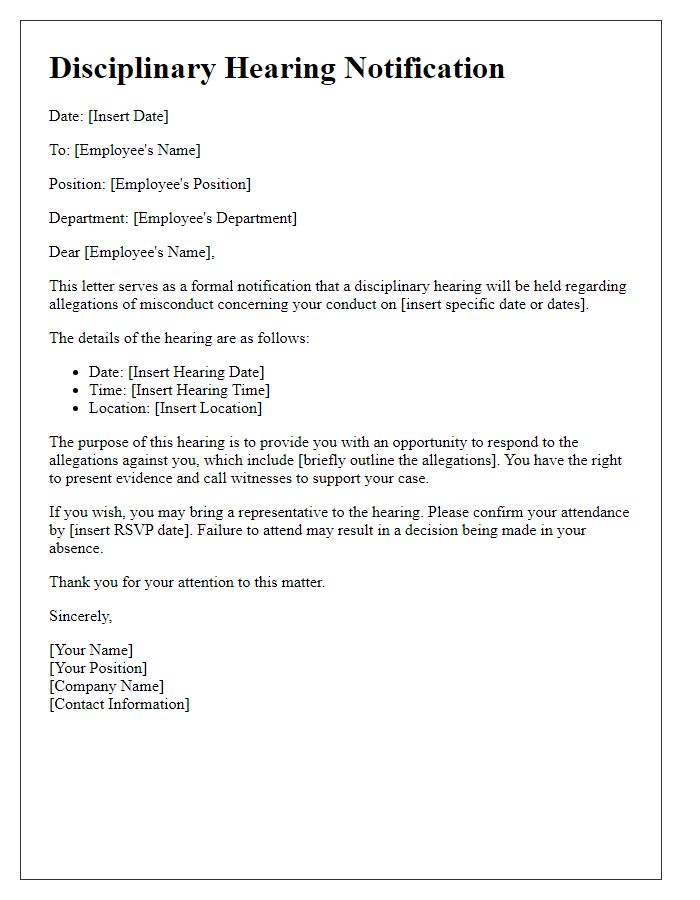
Letter template of disciplinary hearing request for attendance at a meeting
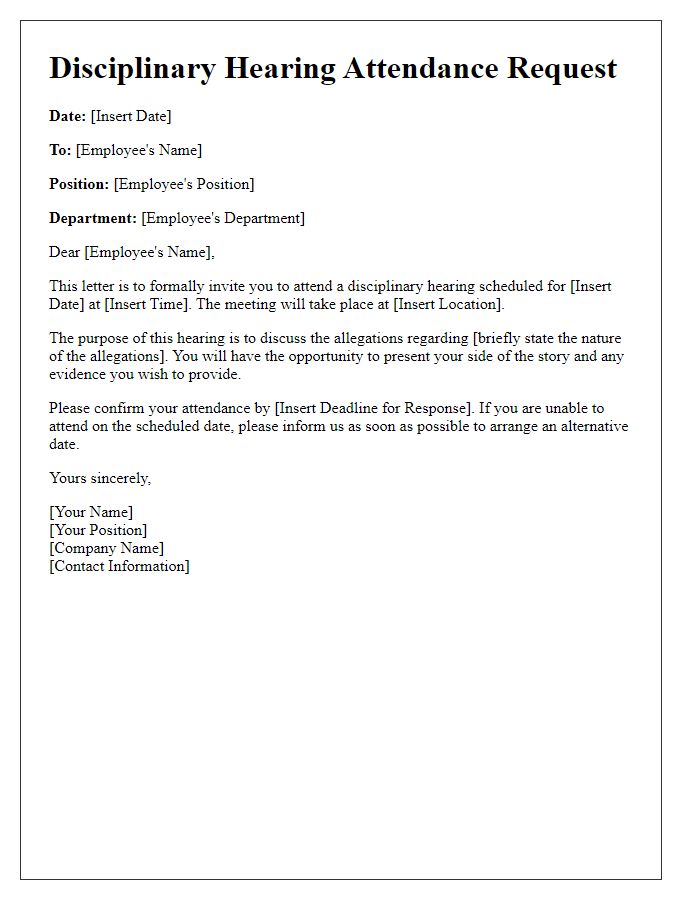
Letter template of disciplinary hearing notice regarding policy violation
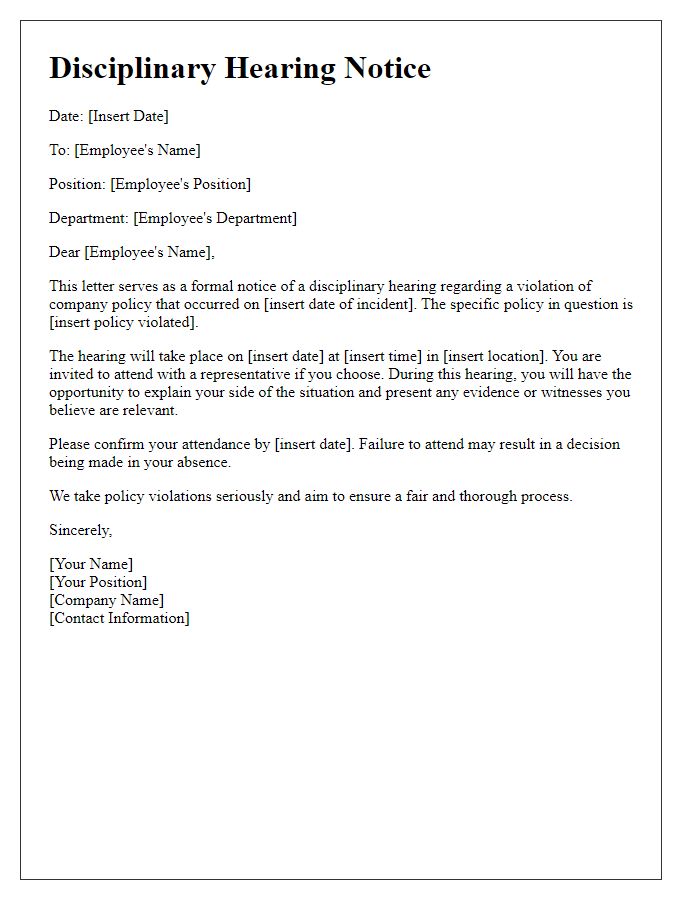
Letter template of disciplinary hearing communication for formal investigation
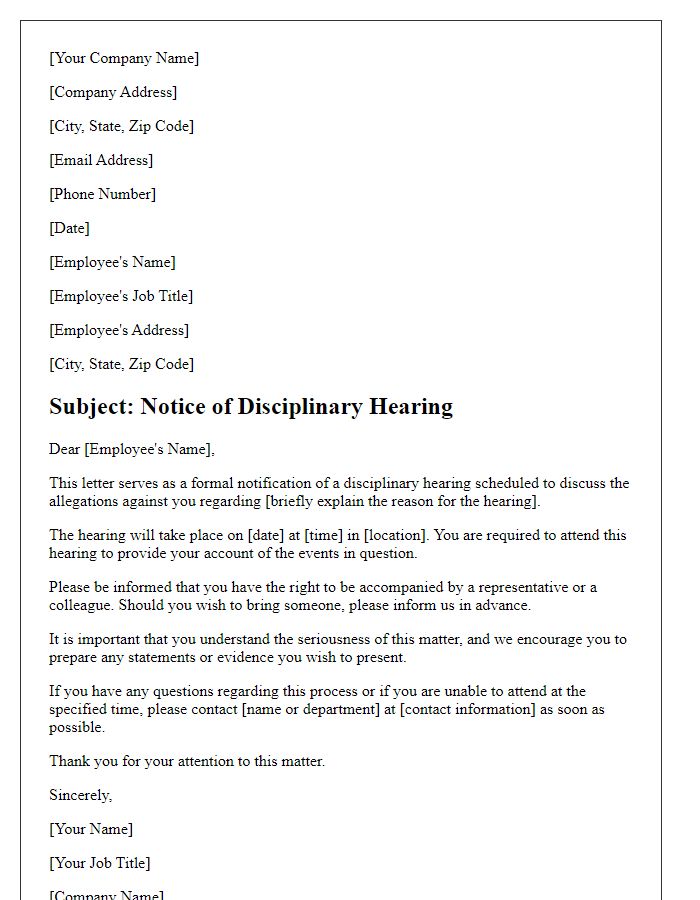
Letter template of disciplinary hearing engagement for employee feedback
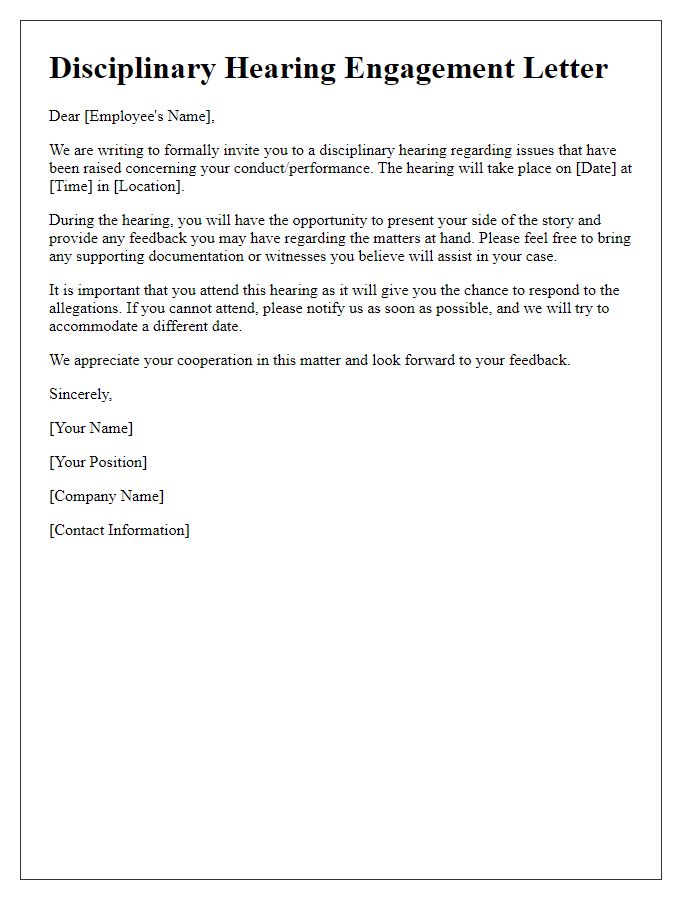
Letter template of disciplinary hearing outline for scheduled discussion
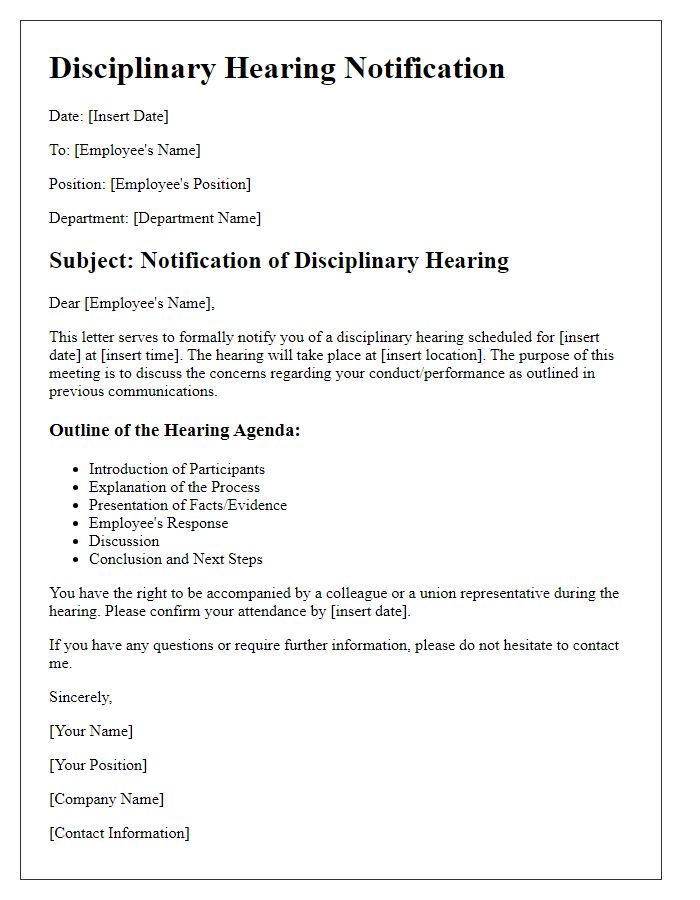
Letter template of disciplinary hearing announcement for staff conduct evaluation
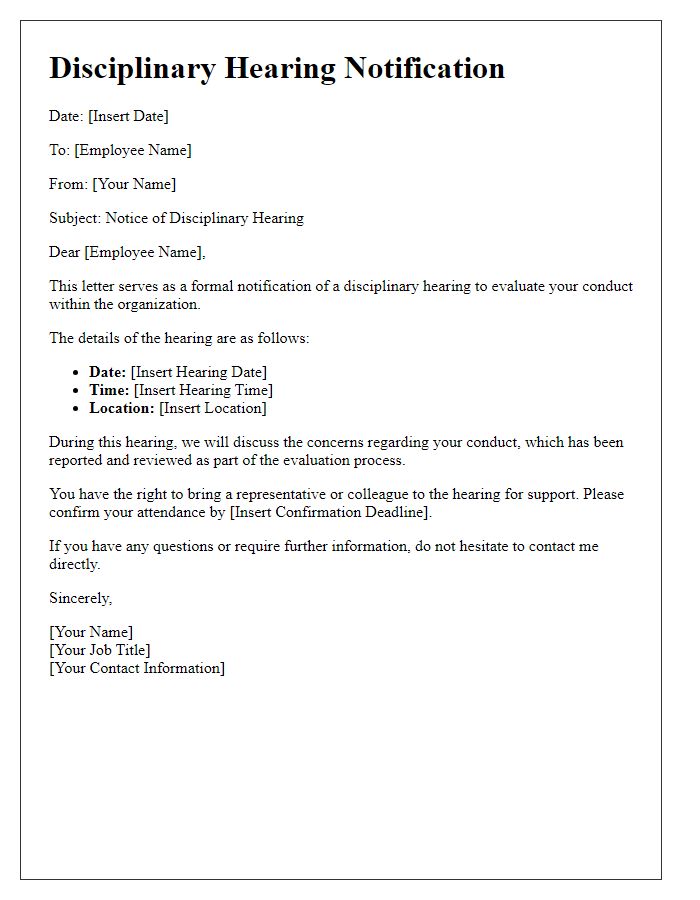

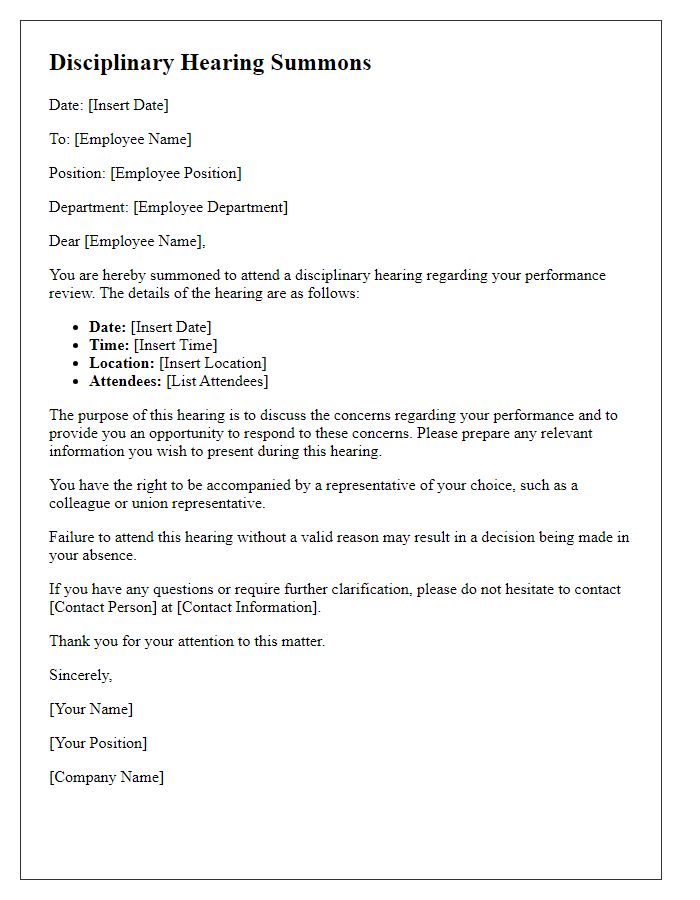
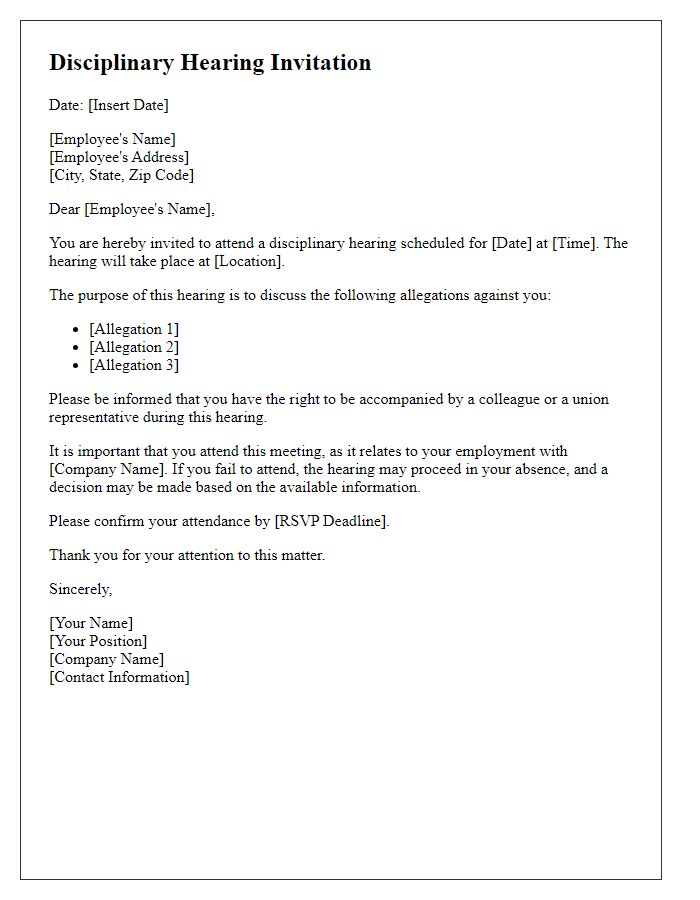
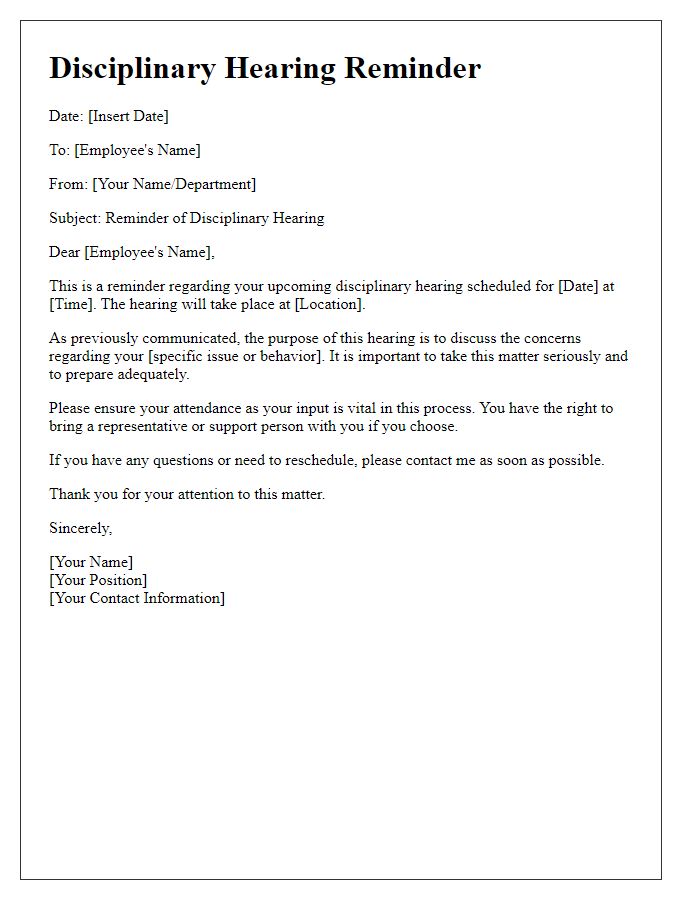


Comments